 |  |
By Kyle Hargrave
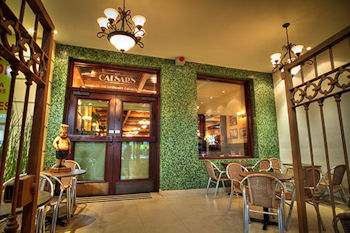
Back in 2010 one of Tijuana’s most prized establishments resurrected and opened its doors to reveal a rich yet often forgotten history. Many months prior, Caesar’s Restaurante had shut down, 80 years since conceiving the Caesar Salad. Caesar’s closure was devastating. The loss of a quality restaurant is never good for a community, but Caesar’s represents so much more to Tijuana than just a salad. Caesar’s Restaurante is the living past of Tijuana; a tangible piece of history which reveals the future of Tijuana’s culinary movement by exposing its culinary roots.
Going to Caesar’s Restaurant is akin to peering into Tijuana’s looking glass. Upon entering, one is instantly ushered into a former epoch. Vintage photographs of Lucille Ball and Bing Crosby hang in homage to former glamour and prestige; the dark wood bar snakes over the checkered floor; and a waiter, wearing a collared shirt and black vest, stands statuesque, with a folded linen draped over his arm. On first impression an eerie feeling permeates, as though the clock stopped 90 years ago and has since decided not to tick. The dining room is dimly lit, offering a safe haven for intimate conversation. The feeling intensifies as the articulate and polished waiter pushes the chair in for your date and hands you a menu lined with classic Italian cuisine. This is the beauty of Caesar’s - its uncanny ability to infuse the taste of legendary past with a contemporary culture.
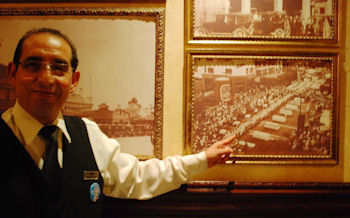
The history of Caesar’s is inextricable to the history of Tijuana, just as TJ’s past is so entwined with San Diego. There are three significant events which led to the Caesar’s genesis; surprisingly, these three events all occurred in the United States - Prohibition, the establishment of U.S. Destroyer Base San Diego, and the exodus of Caesar Cardini.
By January 7, 1920, the entire United States was experiencing a period known as Prohibition. San Diego’s large military demographic was concretized in 1922 with the establishment of the U.S. Destroyer Base San Diego. During this time Tijuana became a budding tourist destination - one of the many unintended effects of Prohibition. Not only did Tijuana attract service men from San Diego, it began to cater to the best and brightest of Hollywood. During this time, a restaurateur by the name of Ceasar Cardini, felt the squeeze of Prohibition tightening around his culinary art in San Diego. Cardini, like so many others, found sanctuary across the border.
It wasn’t long after Cardini opened his new restaurant before his magnum opus came to fruition; the Caesar Salad. The exact year and specific details of the creation are debatable and arguably unimportant. However, most accounts depict it’s birth occurring late on a Fourth of July night, with a sparse pantry, and several hungry U.S. service men. Whether it was Cardini’s, or his chef Livio Sanini’s, creation is a mystery, but one of the two threw together whatever ingredients were left in the kitchen and what resulted became a culinary phenomenon, one which put Caesar’s and Tijuana on the map. The Caesar Salad became Mexico’s first successful culinary export.
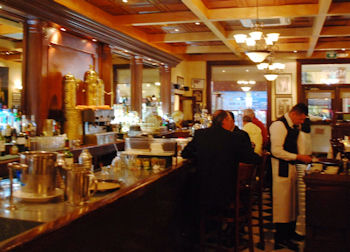
Caesar’s did more for Tijuana during that time then just creating the Salad. The establishment was the fostering ground for what would soon become Tijuana’s most predominant culinary families. Juan Jose Plascencia, father of chef Javier Plascencia, was a common fixture at Caesar’s. It is alleged that his culinary start began with his godfather who was one of the original employees at Caesar’s. It is also said that Javier’s grandfather was a bartender at Caesar’s for a stint. In 1969, Juan Jose opened a pizzeria in Tijuana by the name of Giuseppi’s which is still a mainstay of Italian dining in Tijuana.
Considering the Plascencias longstanding past with Caesar’s it comes as no surprise that they were responsible for its re-opening and its re-emergence as one of Tijuana’s premier restaurants. Needless to say, the Plascencias did a remarkable job restoring the once dilapidated facility. In addition to recovering its nostalgic ambience, the Plascencia’s expanded the restaurant to include a tapas bar.
Armando Villegas is our server, our salad chef, and our tour guide through Caesar’s history; he prepares the salad while recounting the aforementioned details. With 30 years experience, his adeptness in making the Caesar Salad is rivaled only by his knowledge of Caesar’s great historical events. While whisking fresh garlic and anchovy paste he talks about the Plascencia family, about the unsuccessful attempt to create the world record for the largest Caesar salad in 1998 and the subsequent triumph in 2007. He laments about the closure in 2009 and brags of his return to Caesar’s after it reopened.
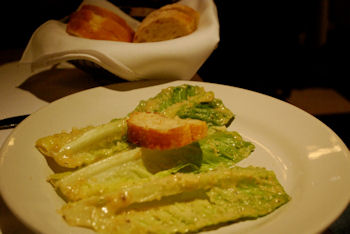
I order the restaurant’s house beer, my date orders sangria. After the salad we are served perfectly seasoned hongos rellenos (stuffed mushrooms) along with grilled pulpo (octopus) marinated in dried chile achiote. For entrées we sample four distinct dishes: camarones "Costa Azul," fettuccine a la carbonara, spaghetti al pesto, and raviolis caseros al sugo. Every dish was delectable and perfectly prepared to the point where I do not even notice the absence of salt and pepper shakers until our plates have been cleared. Executive Chef Nadia Fernandez proved her ability to deliver a plate that lives up to expectations surrounding Caesar’s.
Stuffed to the gills, yet somehow unsatiated, we embark on the final aspect of the visit. Señor Villegas suggests the classic crème brulee and we acquiesce. In addition we splurge and ask for tartalleta de guayaba. After all is said and done, overindulgence has rendered me full, and yet all I can think about is planning my next visit.
The future is bright for Caesar’s Restaurante just as it is for the city of Tijuana. Caesar’s stands apart as a unique institution which embodies Tijuana’s rich past and the resilience of Tijuana’s residents. For a novel experience of the crossroads between the past, the future, and the present, visit Caesar’s - a culinary gift - and a true taste of Tijuana.

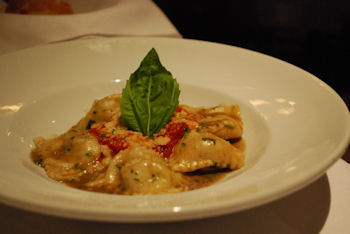
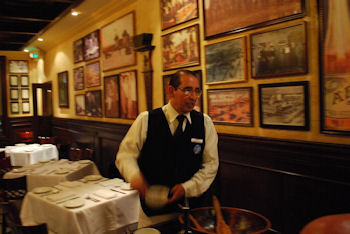
Top photo courtesy of Caesar's Restaurant. All other photos courtesy of Mariana Paredes.

Wonderful support & engagement!

The level of service I have received from Baja Bound (Yara) has been nothing less than exceptional....